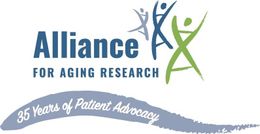Listen to Your Heart — It Could Save Your Life
Heart Valve Disease Awareness Day on February 22 encourages people to learn the risk factors and symptoms of this disease

Have you heard of heart valve disease? If you haven't, you're not alone. According to a survey conducted by the Alliance for Aging Research, prior to being diagnosed with heart valve disease, nearly seven in ten patients had little or no knowledge of the disease.
Heart valve disease involves damage to one or more of the heart's four valves, interrupting blood flow and often causing serious complications, including death. It can exist at birth or develop later in life from calcification, radiation to the chest, other heart diseases and conditions or bacterial infection.
Most people don't know about heart valve disease, with fewer than 1 in 4 U.S. adults reporting that they know somewhat or a great deal about valve disease. But heart valve disease is more common than you think, with as many as 11.6 million people in the U.S. estimated to have the disease and more than 25,000 Americans dying from it each year.
Recognizing the seriousness of the disease, and the fact that disease symptoms are often difficult to detect or dismissed as a normal part of aging, the Alliance for Aging Research established Heart Valve Disease Awareness Day in 2017.
Taking place every February 22 during American Heart Month, Heart Valve Disease Awareness Day is dedicated to increasing recognition of the risk factors and symptoms of valve disease, improving detection and treatment and saving lives. On this day and throughout the year, more than 100 partners — including advocacy organizations, professional societies and hospitals and heart centers — work together to spread the word about valve disease and reduce the number of people who lose their independence and their lives to valve disease.
The reduced blood flow from valve disease can cause shortness of breath; weakness or dizziness; pain, tightness or discomfort in the chest; fainting or feeling faint; fatigue; rapid or irregular heartbeat; lightheadedness; decrease in exercise capacity and swollen abdomen or ankles and feet.
However, people with heart valve disease do not always have symptoms, even if their disease is severe. For these people, a heart murmur is the most important clue. But not everyone has symptoms, and too many people dismiss them as normal signs of aging.
This makes understanding the risk factors and symptoms of heart valve disease critical.
Age is the number one risk factor, with 1 in 10 people ages 75 and older impacted by the disease. People with diabetes, previous heart conditions, high blood pressure, congenital abnormalities and previous cancers to the chest or abdomen that required radiation, are at increased risk of heart valve disease. Additionally, Black American adults experience higher prevalence of heart valve disease risk factors at even earlier ages than whites.
"Higher risk of heart valve disease is connected to age, as well as social determinants of health, such as race, ethnicity, income and geographic location," says Lindsay Clarke, vice president of health education and advocacy at the Alliance for Aging Research. "Heart Valve Disease Awareness Day aims to educate as many people as possible about risks and symptoms, including raising awareness of the diagnosis and treatment disparities faced by communities of color."
The good news is that heart valve disease can usually be successfully treated with valve repair or replacement in patients of all ages. Successful outcomes depends on timely detection and treatment, so make sure you listen to your heart, know your risk factors and get your heart checked regularly. Join the movement to raise awareness about heart valve disease and protect patient lives. Learn more at www.valvediseaseday.org.

The Alliance for Aging Research is the leading nonprofit organization dedicated to accelerating the pace of scientific discoveries and their application to vastly improve the universal human experience of aging and health. The Alliance believes advances in research help people live longer, happier, more productive lives and reduce health care costs over the long term.

